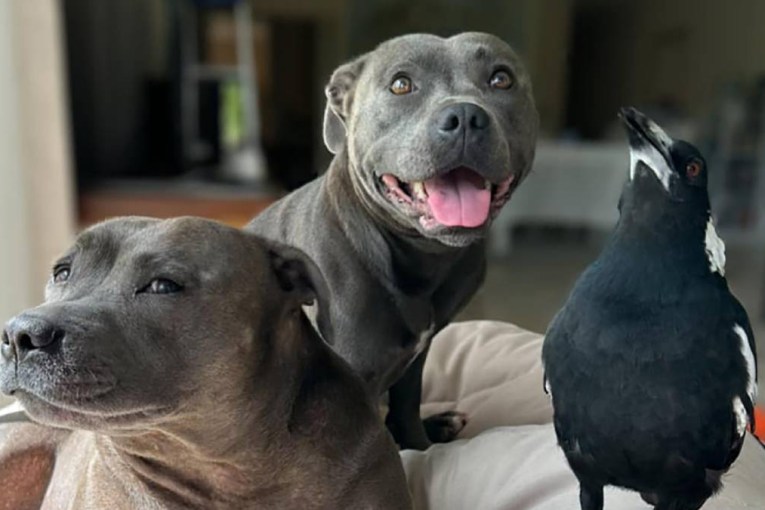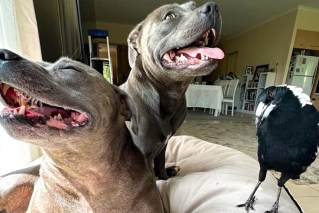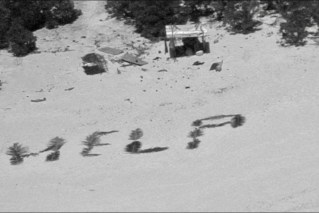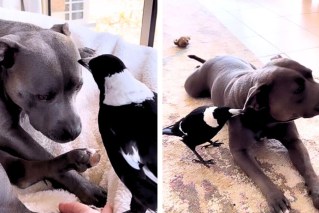Why nearly every town has a Royal Hotel
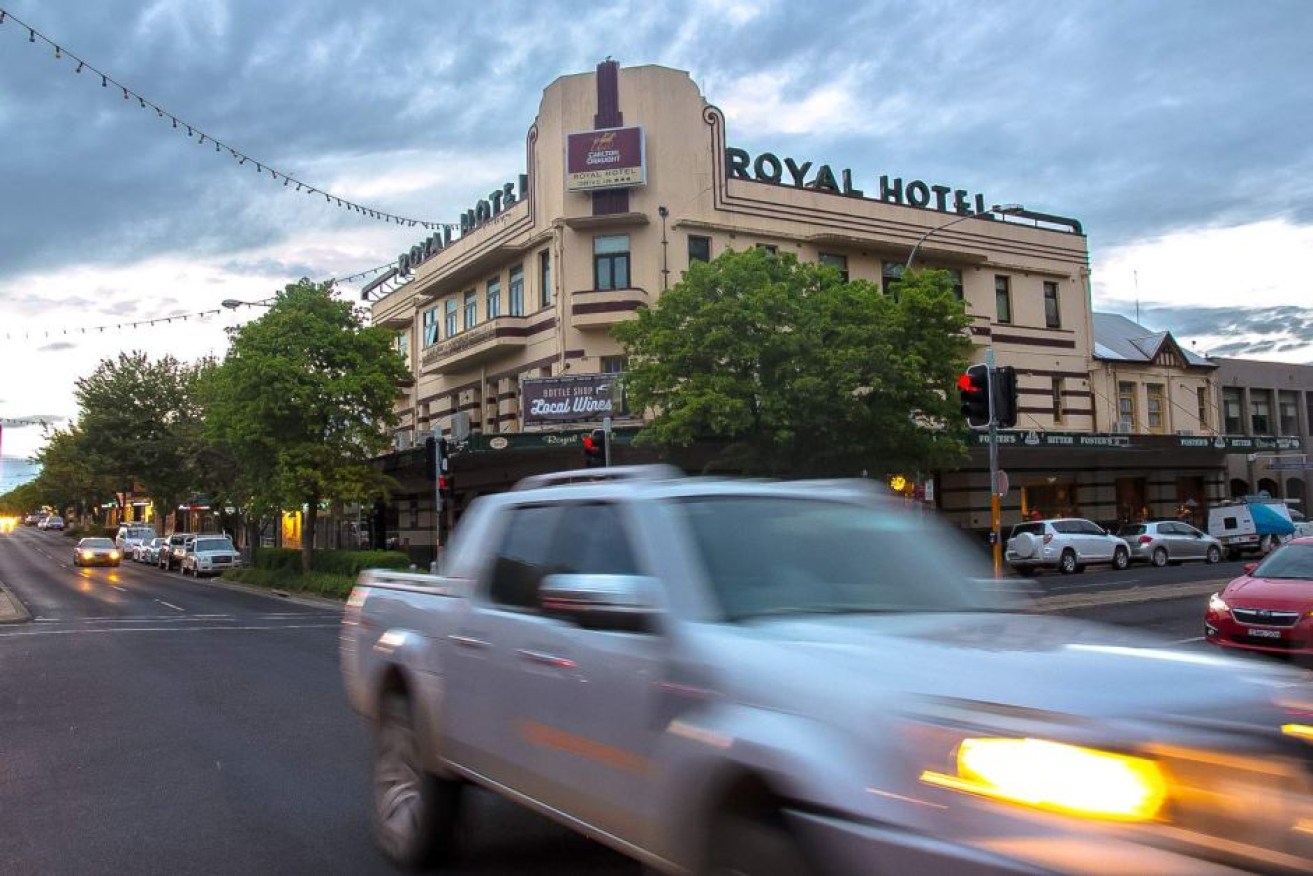
The Royal Hotel in Orange, NSW was established in 1859. Photo: ABC
As any Australian pub crawler will know, the Royal is the most common names for hotels.
Growing up in the Central West region of New South Wales and raising her children in the town of Canowindra, Berrill Castles, often went to her local Royal.
“Something that tickles my imagination is how come there’s a Royal Hotel in just about every town in Australia?” Ms Castles said.
The answer lies in history, during Australia’s colonial era when most Royal Hotels were established.
What’s in a name?
Someone who has looked into Australia’s history of hotels, eating and drinking is Emeritus Professor of History at La Trobe University, Diane Kirkby, who co-authored the book, The Australian Pub, with Tanja Luckins and Chris McConville.
“It’s quite true the Royal was the most popular name for a pub in Australia for something like 120 years,” Professor Kirkby said.
She said there were two likely reasons for the name’s popularity during this period:
An early marketing technique – the name, ‘The Royal’, with its connotations of connection with Royalty was aspirational and aimed at attracting well-to-do clientele.
“Perhaps it was a claim to heritage, loyalty and national sentiment, by association with the legacy of English inns as places of accommodation, meals and hospitality,” Professor Kirkby said.
A link to colonial communications – hotels were set up on transport routes and, before the introduction of rail, goods and people were moved by coach.
“Those coaches carried the mail; the Royal Mail. Maybe those many Royal Hotels were the official coach stops,” Professor Kirkby added.
She said she could not find any rules governing the use of the word Royal in hotel naming in colonial Australia and establishments were titled whatever the owner wanted.
“I can’t even see anything dictating the practice except location, if it was at a railway terminus it was called the railway if it was near a river and ferry stop it was called the Punt Hotel,” she said.
Another theory for the name is that Royal Hotels were where Royalty stayed when they visited Australia but Professor Kirkby said this was unlikely.

The Royal Mail Hotel, near the railway line Williams Lane, Myers Flat, Victoria. c 1900s. Photo: Vince Scinetti and Bendigo Art Gallery
Does nearly every town have one?
Statistically, there is not a Royal Hotel in nearly every Australian town, but it is still the single most common name.
Privately run website Publocation, dedicated to “all things pubs”, lists the total number of Australian hotel pubs and bars as around 6033 (this figure is updated every 12 months).
It also has a list (updated around three years ago) of the most common pub names and at the most recent update The Royal was in the No.1 spot.
Another site, G’Day Pubs, which has a 2002 collation of names, lists the most popular pub name in Australia as the town name, for example, the Young Hotel, but the word Royal was the single most common title.
For the states with the highest number of Royal Hotels, their respective Liquor and Gaming Departments were able to provide these more up to date figures:
- In NSW, there were 2025 licensed hotels of which 150 had the name Royal in the title, or about 7 per cent
- In Victoria, of the approximately 1500 hotels that would fit the category of pub, 47 had Royal in the title, or about 3 per cent
- Of Queensland’s 1369 pubs around 40 pubs had the name Royal in the title, or about 3 per cent.
There was also a range of Royal-related names including Imperial, Rex, Victoria, Prince of Wales, Palace, Union, Empire and Crown.
While not every town has a Royal, some had more than one, for instance a current exhibition at the Bendigo Art Gallery reveals from the mid 1800s to early 1900s, the city had the Royal Duke, the Royal George, The Royal and the Royal Mail.
However, some places have none at all; there are no pubs with the word Royal in the name in the ACT and, overall, Royals are becoming less common.
“We not only have a lot of pubs declining but the market has changed so much; you’re much more likely to get Bridie O’Reilly’s Irish pub rather than the Royal,” Professor Kirkby said.

The Royal Hotel in Queanbeyan. Photo: ABC
The Royal fascination
While the name may be on the decline, fascination with Royal Hotels is still strong among the Australian public and web sites, blogs and photo galleries are dedicated to them.
For nearly a decade, Joan Tunstell has photographed Royal Hotels and posted the images on a blog called The Royal Collection.
“I use it as excuse to explore towns. As we were driving along the highway, I’d say ‘let’s go off into that little town and see if it has a Royal Hotel’,” she explained.
“It has to have Royal in the name but there are those like Royal Mail Hotel I call them ‘Royalist’ hotels and others I call ‘Fergies’ because they’re former Royals,” Ms Tunstell said.
Her online album is now sitting at about 85, including those contributed by others, and she has another 10 to upload.
Ms Tunstell said she would like to visit nearly every Royal Hotel Australia, adding that she thought the greatest concentration was in NSW and there were some in Queensland and Victoria but hardly any elsewhere.
She said she had no interest in photographing hotels of other names, for instance the Railway or the Commercial; she just loves Royal Hotels.
“The funny thing is I’m a teetotaller and I’ve never been into any of these hotels, I just like the name,” she laughed.
-ABC
